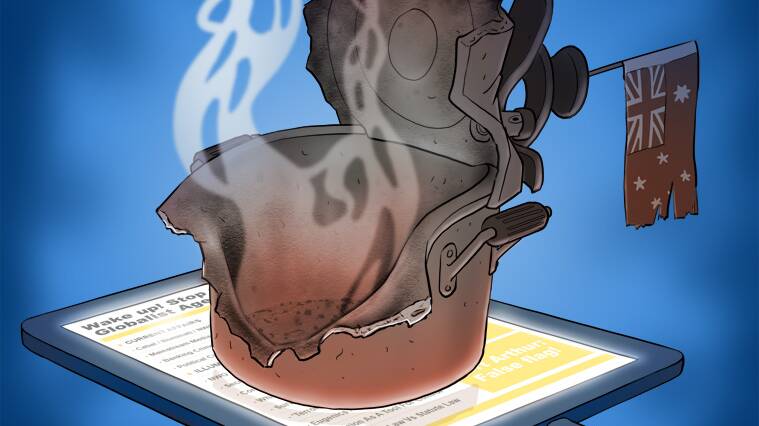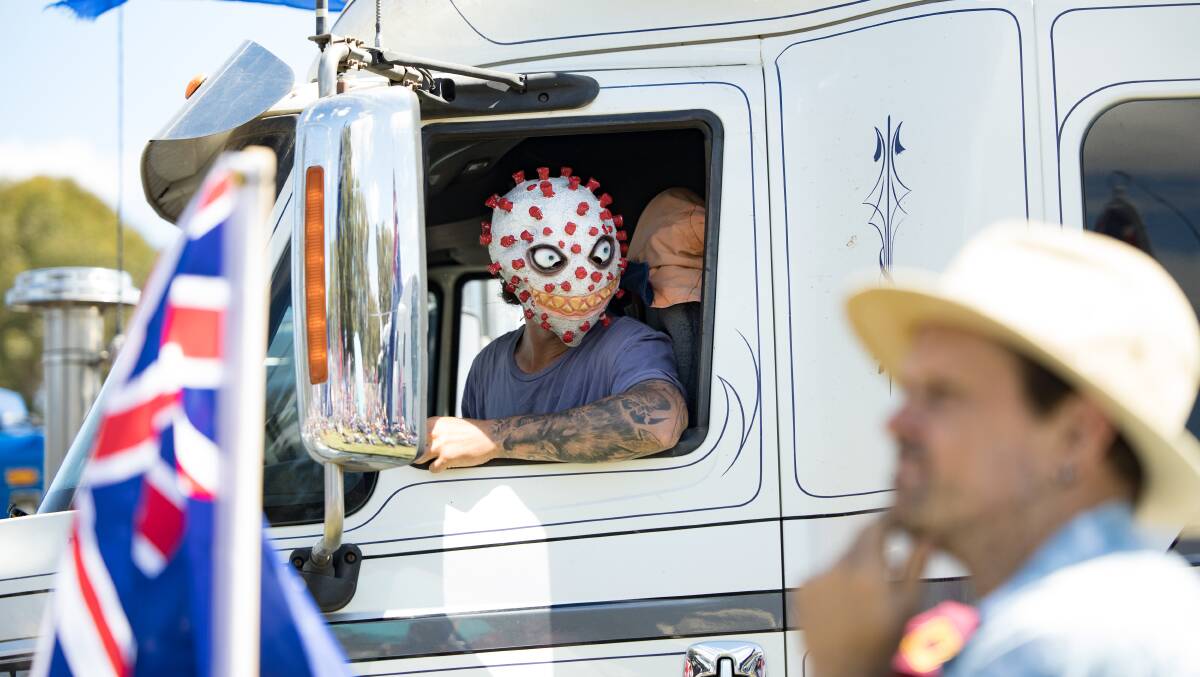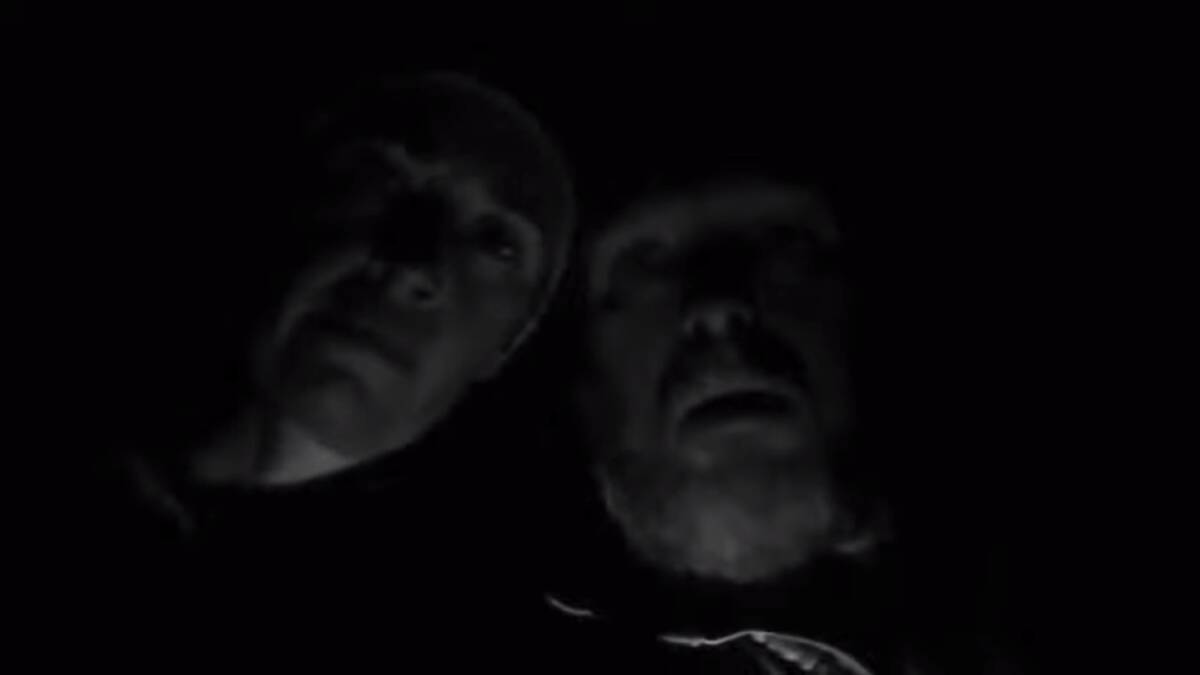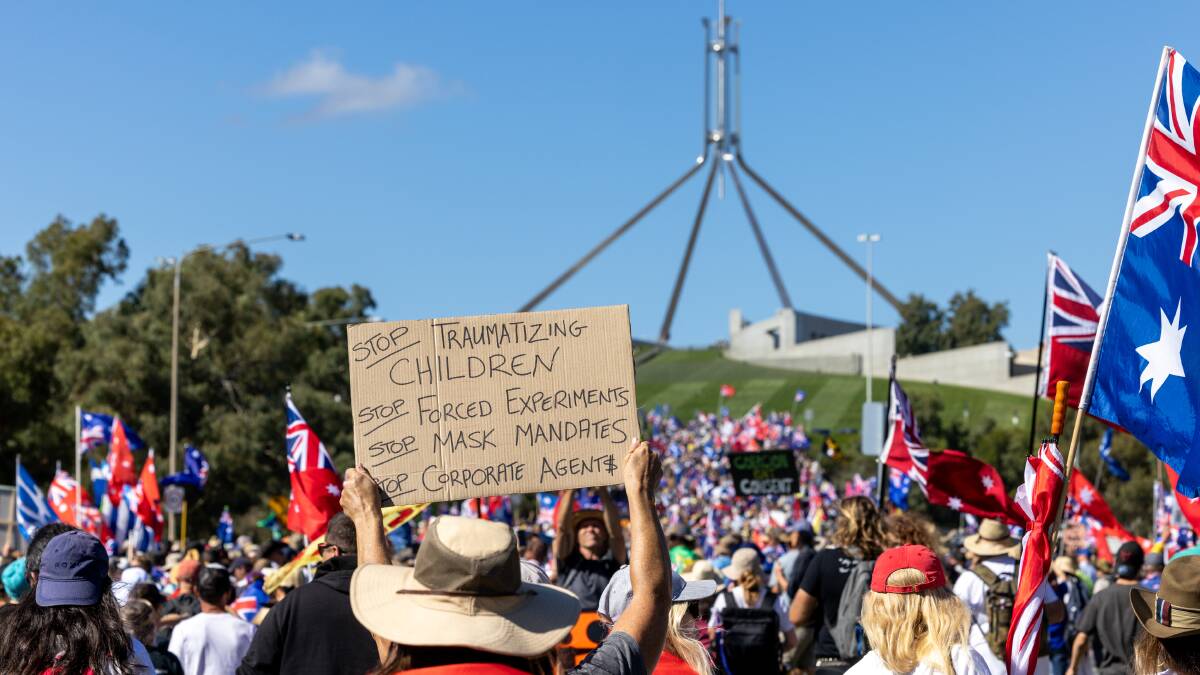In a small town with fewer than 100 residents, and a nearly four-hour drive from Brisbane, three killers laid in wait.
Subscribe now for unlimited access.
or signup to continue reading
Over the next 24 hours, the three former school workers - two of them brothers, the other, a wife of one and an ex-wife of the other - would shoot down two cops and their neighbour before the property was stormed by tactical police and they were killed.
The shocking events dominated national headlines, drawing comparisons to violent gun-fuelled sieges seen overseas.
But the scenes also left many wondering how two former principals and a former social worker became so estranged from society, and so detached from reality, to meet this fate.
And how nobody saw them coming.

'It was only a matter of time'
In the hours, days and weeks before their deaths, couple Gareth and Stacey Train had left a trail of crumbs on the internet.
Singled out, the online activities of the Trains, which include comments left on conspiracy forums and videos uploaded to YouTube, are strange but don't necessarily provide warning signs of the danger to come.
The pair uploaded thirteen videos over the span of a month, the majority of them containing references to a religious apocalypse, and various conspiracy theories relating to vaccines and satanic rituals.
One of the videos also references Gareth's brother, Nathaniel, following the release of a missing person's alert about him.
A distorted male voice can be heard over the video questioning whether government officials would want unreleased information to "go public" by using the man's "little brother".
But the videos, while disturbing with the benefit of hindsight, only provide a glimpse into the minds of the Trains, and fail to offer any sort of warning sign roadmap for future threats.
Online extremist expert Dr Kaz Ross, who's been researching the rise of conspiracy theories in the anti-vaccine community, says the trio appeared to adopt an "apocalyptic mindset" from their beliefs.
And the isolation from society plays a major factor in people becoming more prone to violence.
"Really, it was only a matter of time till we saw something on this kind of scale here," she says.
"When groups turn away from society and go, 'right, that's it. We're forming our own society with our own rules', you end up with your Queensland situation."

One loosely-formed group of conspiracy theorists, called "sovereign citizens", don't believe the Australian government, including any of its laws or structures, has any legitimacy.
Some within these groups have sought an off-the-grid life, unperturbed by authorities.
Mike Burgess, the head of Australia's domestic spy agency, Australian Security Intelligence Organisation, flagged earlier this year his agents were watching those who shared these views.
READ MORE:
One South Australian couple's residence was raided last September after police were denied entry for a "routine firearms audit".
The couple, who can be described as sovereign citizens, had allegedly become hostile toward police, requiring them to withdraw and later return with a tactical response team and negotiators.
Police ended up seizing 13 guns, including shotguns, rifles and a replica firearm, from the South Australian property.
Cyber terrorism researcher, and head of the Online Hate Prevention Institute, Dr Andre Oboler says Australia had only avoided more incidents happening because of its strict gun laws when compared to other countries.
"The conspiracy theories we see here are the exact same problem we're seeing in the US where guns are more freely available, leading to a much larger number of incidents," he says.
A new stage
On a Monday evening, just hours after two police officers were gunned down by the trio at the Trains' property in the rural locality of Wieambilla, Gareth and Stacey Train prepared a video.
In the darkness, the two delivered a chilling message.
"They came to kill us," a man with Gareth's likeness says.
"And we killed them."

Stacey Train, once a principal, had quit a senior teaching role at a nearby school in December 2021 - the same month vaccinations for education workers in Queensland became mandatory.
Dr Oboler believes the couple turned to violence to regain a sense of control.
"What we see is people feeling that they've got a complete loss of control and they want to take action to regain control," he says.
"When everything else fails, people often turn to violence and we see that in many different settings and this is an example of that."
He also warns sovereign citizen ideology makes these people even more dangerous - a core belief they have as much right to shoot someone as the courts, police and military do.
But Dr Ross is worried the threat of conspiracy theorists committing real-world violence has been dialled up for another reason.
Homesteading, or forming self-sustainable communities off the grid, seems to be on the rise for these groups following the failure of the so-called "freedom" rallies during COVID-19 lockdowns.
A number of the loudest voices in the community have started switching out their megaphones and protest signs for shovels and compost.
Despite sounding relatively benign, Dr Ross warns it's a "bad sign".
"You find your land, you're beyond the prying of neighbours, you can do whatever you like," she says.
"You do your shooting, you do your training, you have your ideal ideology out there and then the next minute, you're in a siege with cops."
Dr Ross says it already happened with some neo-Nazi groups, who had seemingly turned to hobby farms.
Others in encrypted messaging chat rooms have begun discussing setting up self-sufficient communities in regional towns around Australia. Many of the groups, which exist primarily on Facebook and The Canberra Times has chosen not to name, are small in numbers but their supporters are fervent.
Their aim is to "walk away" and set up new societies, rather than fighting.

And while a number of those involved in the anti-vaccine and sovereign citizen movements pledged non-violence publicly, the rallies had expanded their networks and put them in contact with more violent outfits, the experts warn.
"You've got networks made across groups that never would have met before," Dr Ross says.
"That can facilitate not only increased radicalisation, but things like access to weapons or even access to techniques."
Preventing the next Wieambilla
With the signs all there, Dr Ross wonders how online extremist researchers failed to spot the trio, who didn't seem to show up on anyone's radar.
"If you look at the comments that Gareth Train was making on a lot of sites, there's not much that differentiates what he was saying to what other people were saying on those sites," she says.
But the clues that might have led to an earlier intervention aren't usually found on the internet.
Matt Quinn heads up EXIT Australia, one of Australia's few de-radicalisation programs.
Two decades earlier, as a young disenfranchised teen in Western Sydney, he, himself, held extremist views leading a white supremacist gang.
Now he dedicates his time counselling extremists, mostly far-right ones, away from violence.
Like the researchers, Mr Quinn says community vigilance - from friends, families and co-workers - is the best way to spot the warning signs.
But more mental health services are crucial in supporting those who do come forward with issues.
"The people that come to us are so angry they want to use violence and then they've only got 10 sessions to go and talk to a psychologist or counsellor," Mr Quinn says.
"These people need someone to talk to every two days.
"It's not a quick fix."
The federal government is involved in work with the community groups that are in the trenches against extremism in the suburbs.
Through the Department of Home Affairs, grants are offered to groups, like EXIT Australia, to build diversity and grow social participation in vulnerable groups.
Dr Oboler says this work is promising but there's still a long way to go.
"We need to invest a lot more in this. And it's not something that government alone can do," he says.
"By the time government thinks it's a problem, it's often too late."
Our journalists work hard to provide local, up-to-date news to the community. This is how you can continue to access our trusted content:
- Bookmark canberratimes.com.au
- Download our app
- Make sure you are signed up for our breaking and regular headlines newsletters
- Follow us on Twitter
- Follow us on Instagram


